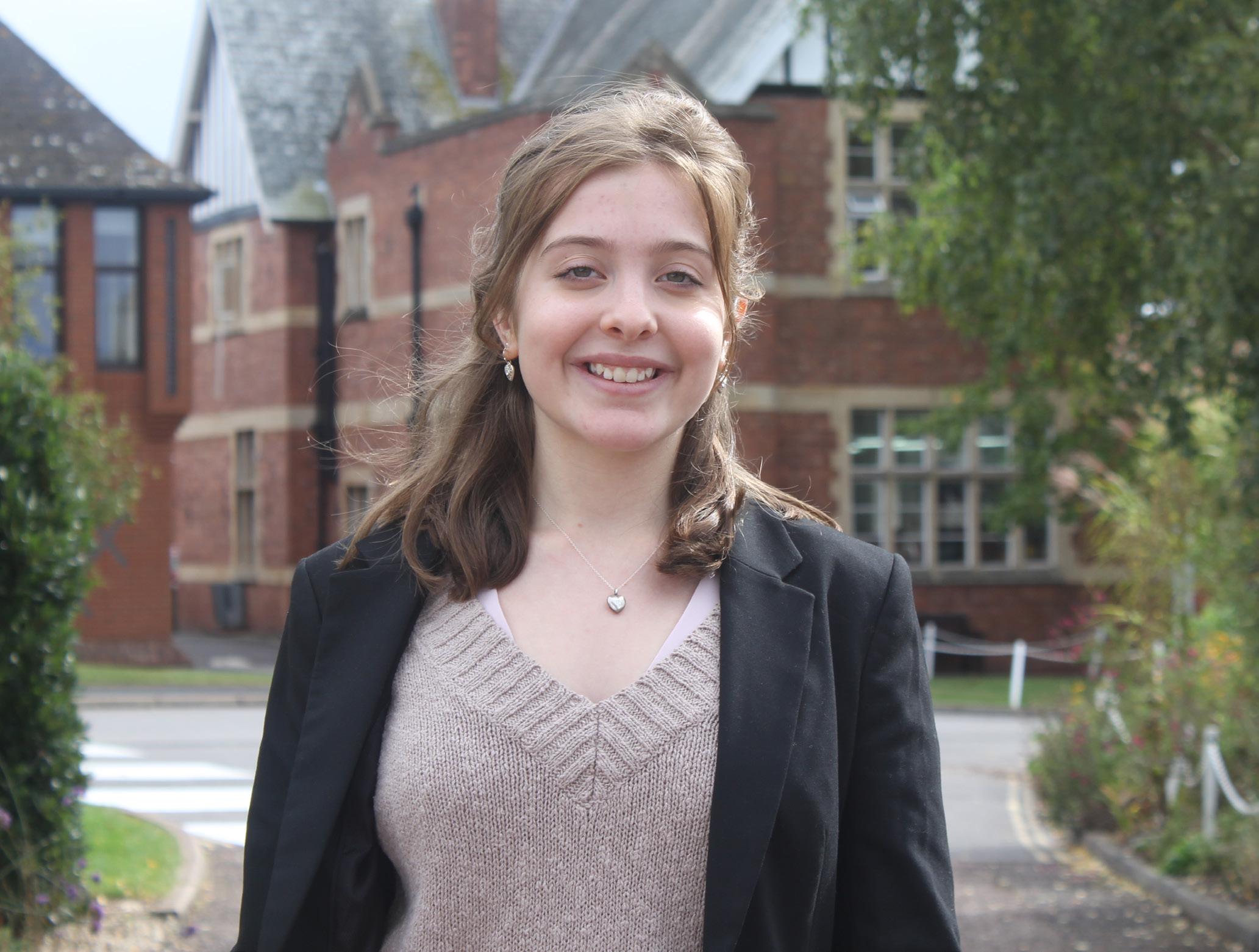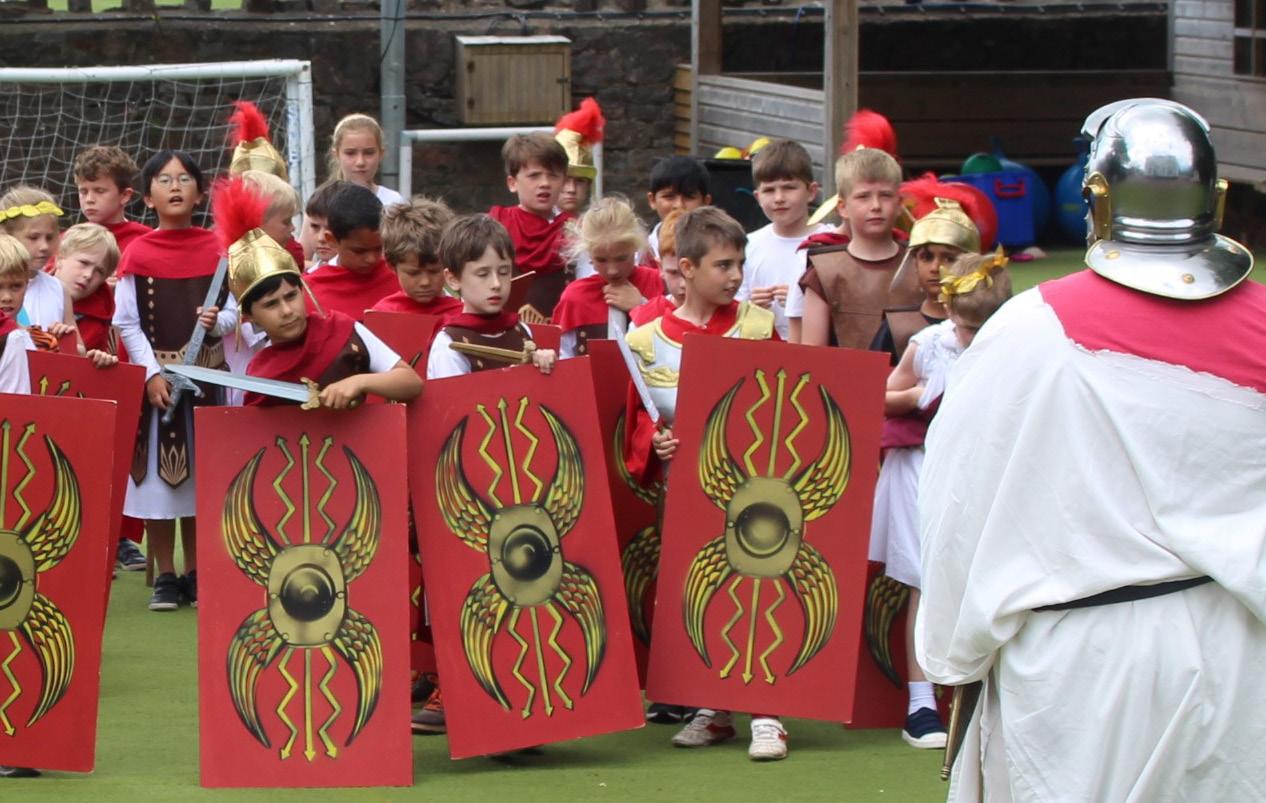L A N G UAG ES
Deutsche Debatte
On Monday 23 November, four pupils, three from the Lower Sixth and one from Upper Fifth, took part in the German debate. Jess Howell, Katie Donovan, Nathan Rodney-Jones and Xuanjie Lin took turns in the debate, the topic of which was ‘Die Umbenennung von kolonialen und rassistischen Gebäude - und Strassennamen ist berechtigt’, or ‘The renaming of colonial or racist buildings and streets is justified’. And we had to debate against this! by
T
he team captain was Jess, who introduced us and our arguments. She also had an argument of her own, about how the changing of history is not the way to improve our world; rather, education. We visit historical places such as Auschwitz so that we never forget. It is uncomfortable, and so it should be. If we rename streets and buildings, or take away history in other forms, will this sense of remorse and shame still exist? Losing history is dangerous, a point Nathan later reinforced. As there were pupils from different year groups involved, and we couldn’t work together, I wrote the speech for Xuanjie to say. Our first point was that many of the people who today we see as completely wrong, for example Colestone, did have some good contributions to our world, and if we see them as either fully good or fully evil, we are being narrow-minded. Our second argument was about the renaming of streets in particular. There is a street in the centre of Berlin called Petersalle, which was named after a
JOANNA REYNOLDS
colonialist called Carl Peters. Now it has been rededicated to Hans Peters, who fought against the Nazi regime, but the town has not actually been renamed; it is still called Petersalle. However, while this means that the street is no longer officially dedicated to a colonialist, many people will still associate its name with Carl Peters. But, if we were to change street names, who’s to say that the new names won’t be considered offensive in years to come? To avoid conflict for certain, the safest choice is probably to name streets after something mundane, like flowers or birds. This will likely avoid offense, but does it really mean anything? To finish, we mentioned that if street names were to be changed, people wouldn’t know where to go. Katie’s speech continued from ours with the idea about how the renaming would affect our economy and the environment. Even if we did rename streets, imagine the cost of reprinting maps! Here the opposition pointed out that this is about people, not money, but couldn’t that money be spent on something more worthwhile than
reprinting maps? We also reasoned that that would have a devastating impact on the environment. Continuing on the side of how our time and money could be better spent doing other things, Katie said that ‘actions speak louder than words’. What is renaming a street, in comparison to teaching the people in that street to be kind? She finished by explaining about the need for education about history, which Nathan added to. Nathan’s argument focused on the danger of forgetting what people have done in the past. I am sure you will have heard the phrase ‘those who do not learn from history are doomed to repeat it’. We need to be educated about what has happened in the past and told why that was wrong. Our job is to remember these people, learn from them, and make our future better - not to destroy history. He also asked how far we would go to make everyone happy. Someone, somewhere is bound to find something offensive. Will we stop people making art or speaking freely, in case they say something slightly politically incorrect? Nathan likened that to a dictatorship. Finally, Jess concluded, by summing up our arguments and responding to the other team’s last point. We chose to emphasise in our final speech that we cannot change the past at the risk of forgetting history. Rather, we should be changing ourselves in the present, in order to make the future better for all of us. In the end, we didn’t win, but we did thoroughly enjoy the experience. I am personally terrible at listening exercises, but this debate helped me train myself to hear points that the opposing team were saying, and helped us to be spontaneous with our responses. Was denken Sie, über diesem sehr wichtigen Thema? What do you think of this very important topic? The Exonian 2021 43
















































